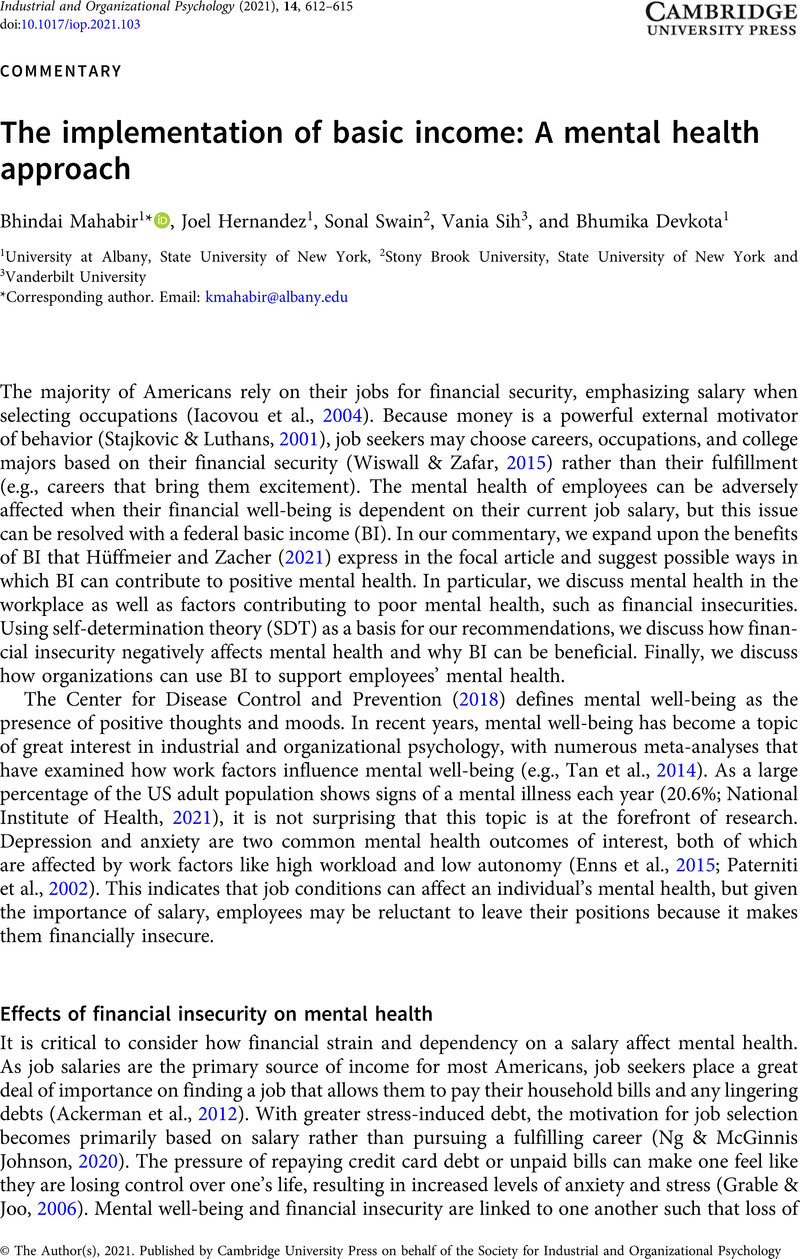Crossref Citations
This article has been cited by the following publications. This list is generated based on data provided by Crossref.
Montazer, Shirin
Brumley, Krista M.
Pineault, Laura
Maguire, Katheryn
and
Baltes, Boris
2022.
COVID-19 Onset, Parental Status, and Psychological Distress among Full-time Employed Heterosexual Adults in Dual-earning Relationships: The Explanatory Role of Work-family Conflict and Guilt.
Society and Mental Health,
Vol. 12,
Issue. 2,
p.
119.



